A life lived brightly: Wendy Martin and the founding of Women's Studies
By Leah Kinthaert
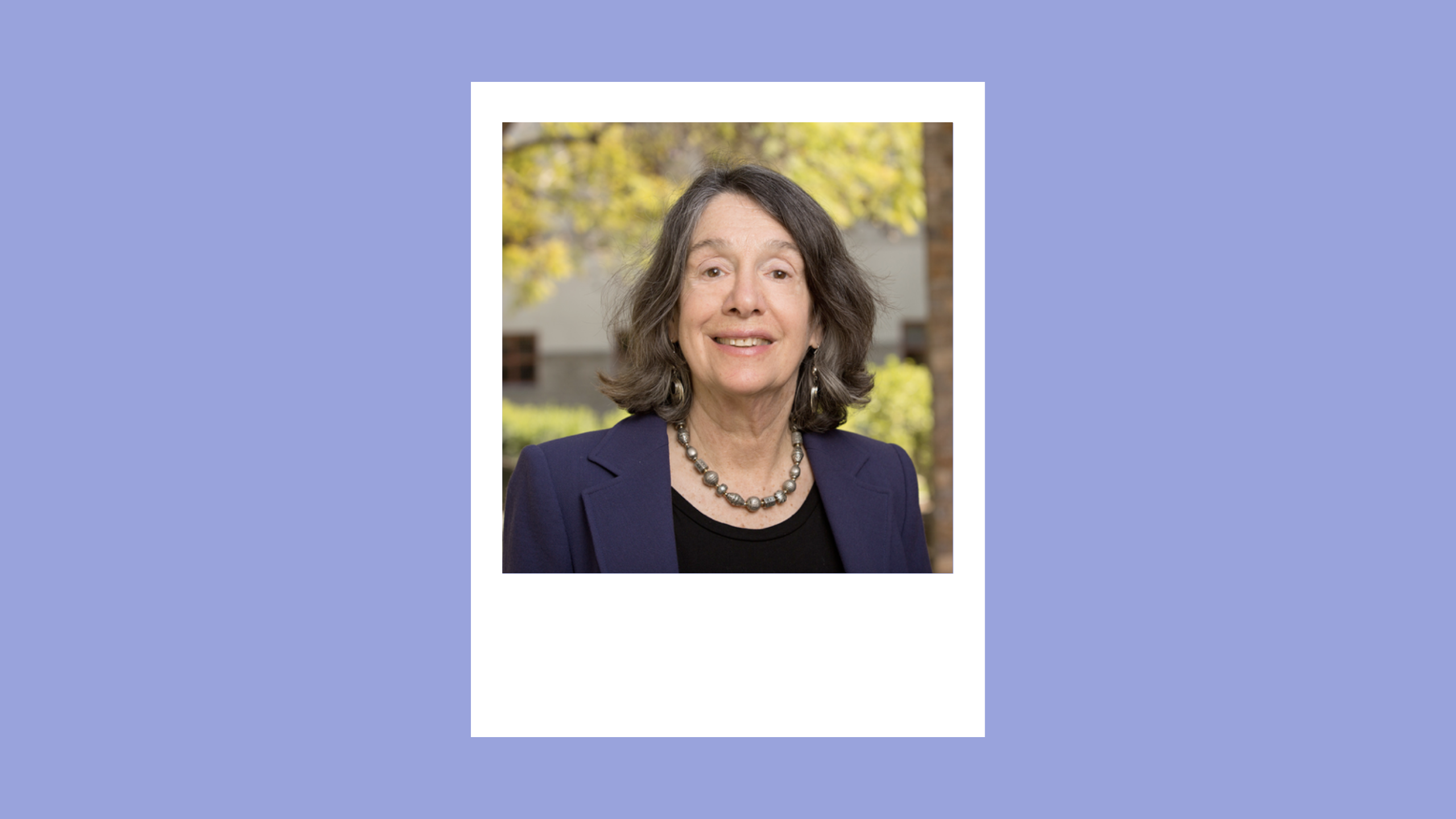
History graces us with spectacular moments that most of us can only dream of, such as the first footsteps on the moon (and those who got to see it live on television), or the iconic performances at the first Woodstock festival (and those who were lucky enough to attend).
These rare historical moments in time are sometimes wonderfully captured on film, like the image here of feminist protestors in 1971 demanding entry into a male-only Manhattan watering hole, and sometimes only left behind as stories shared by the people who lived them.
Either way, these shared moments are critically important, because they prove witness to facts, facts that explain: "things weren't always the way they are now."
Seismic shift
New York City in the early 1970s was alive with protest and potential. Black activists were uniting in the Black Panther party, Gay Liberation had been unofficially launched at the Stonewall Inn uprising, and women took to the streets of Manhattan to celebrate the 50th anniversary of women's right to vote in the U.S.
Kembrew McLeod gives a great description of the electric vibe of those times in his book The Downtown Pop Underground: "The 1960s and 1970s produced seismic shifts in American popular culture that can now be felt on a global scale. One major epicenter was downtown New York City, where the inhabitants of a roughly one-square-mile area of Lower Manhattan changed the way we think about music, art, performance, and human sexuality."
Wendy Martin was there. An Assistant Professor at CUNY/Queens College, a photo of her from the time gives the impression she could have easily fit in playing acoustic guitar at a chic coffee shop in Greenwich Village. Martin had bigger fish to fry though, she was about to make history with the first-ever academic journal focused on Women's Studies.
We're proud to shine a spotlight on Women's Studies, the first journal ever devoted to scholarship and criticism of women in the fields of literature, history, art, sociology, law, political science, economics, anthropology, and the sciences. I sat down with Wendy Martin and asked her to tell her story.
I was used to being the only woman in the room... and there I was one woman among many hundreds of professional women...
Second wave
Wendy Martin describes the incredible zeal with which her female peers became active in the women's movement, when I ask her how Women's Studies was founded: "I founded the journal when I was an Assistant Professor of American Literature and American Studies at the City University of New York, Queens College, and the second wave of feminism was very vigorous in Manhattan and the greater New York area."
"On November 23, 1969, the First Congress to Unite Women was convened in New York City, and three other regional conferences were held in San Francisco, Los Angeles and Chicago. Even more women attended the Second Congress to Unite Women on May 1, 1970."
"On August 26, 1970, two years after I became a member of the English Department faculty at CUNY, there was a March down 5th Avenue to Celebrate the 50th Anniversary of Women’s Right to Vote as well as the Women’s Strike for Equity sponsored by NOW led by Betty Friedan and Kate Millett. The New York Times reported that 50,000 women from all walks of life were part of this demonstration."
Martin continues: "I participated in the Second Congress to Unite Women and was truly amazed by the number of women in a wide range of professions from Academia, Journalism and the Arts to Architecture, Law and Medicine. I was used to being the only woman in the room at many professional meetings and there I was one woman among many hundreds of professional women who were voicing concerns about discrimination based on gender and the oppression of patriarchy."
I decided then and there to teach a course in 'The Feminist Movement'
"I decided then and there to teach a course in 'The Feminist Movement'. This was the first feminist course taught in the CUNY system, and it received widespread attention; the course included lectures by Betty Friedan, Bella Abzug, Kate Millet, Robin Morgan, Elaine Showalter and many more prominent feminists and it had a very large enrollment. The course received so much attention that several of the newspapers in the greater NYC area published stories about it."
Martin chronicles how one thing led to another, once the ball got rolling: "Word spread about my work, and I received invitations to lecture on the topic of American Feminism in several American Universities. Harper & Row, a prominent mainstream publisher, asked me to publish a book on American Feminism which I titled The American Sisterhood: Writings of the Feminist Movement from Colonial Times to the Present (1972). In 1973-74, I was invited to bring feminism to Stanford University as a Visiting Professor, and I taught the first feminist courses there as well."
It's really incredible to see how things moved so quickly, and so much was accomplished in such a short period of time. Although not sure Martin would want to be called the Founding Mother of Women's Studies, if anyone should have that title, I would vote for her. I asked her if there were any other journals that came about around the same time, or if Women's Studies was, indeed the first, as I have heard.
"In 1972, the journal Feminist Studies was founded by Ann Calderwood who published this journal independently before 1977 (Note, this journal is now published by George Washington University). In 1975, Signs: A Journal of Women in Culture and Society was published by the University of Chicago with Catharine Stimpson as the Founding Editor. Technically, I think it is safe to say that Women’s Studies: an Interdisciplinary Journal was the first regularly published academic/scholarly journal of feminist scholarship."
When I told the administrator... a senior man... about the Journal, he stood up and slammed his office door shut with a loud bang; he then took off his belt and folded it in three parts and began striking his desk with his folded belt...
The success and achievements Martin had in the early 70s were not without some roadblocks. Martin shared with me the absurd, but sadly not uncommon for those times, response that her journal launch received from a senior male administrator at Queens College, CUNY.
Martin tells the story of the somewhat disturbing encounter: "Once the name of the Journal and the Editorial Board of Women’s Studies: An Interdisciplinary Journal was established, I thought I would meet with a senior administrator at Queens College, CUNY, to share the exciting news about the Founding of the Journal."
"When I told the administrator, who was a senior man about the Journal, he stood up and slammed his office door shut with a loud bang; he then took off his belt and folded it in three parts and began striking his desk with his folded belt, and shouting, 'We hired you to teach American Literature, not to teach women writers and to create a Women’s Studies Journal!'"
"As he repeated this grievance over and over, I gripped the sides of the chair in which I was sitting and held my breath; finally his anger spent, the administrator motioned to me to leave the room, and I quietly complied. As I passed the secretaries typing diligently at their desks, I wondered if they had heard the administrator’s temper tantrum, but I said nothing and left the building."
"The next morning when I came to work, I went to get my mail in the room which was lined with faculty mailboxes; in each mailbox was a flier which read: 'Announcing a new publication, Male Studies, proof of genitalia must be submitted with each manuscript.'"
In each mailbox was an announcement which read: 'Announcing a new publication, Male Studies, proof of genitalia must be submitted with each manuscript'
Fifty years of feminist scholarship
I asked Martin how the journal has changed, since its founding over 50 years ago, and what she sees as the future of Women's Studies: An Interdisciplinary Journal.
Martin answers: "During the 50+ years since Women’s Studies: An Interdisciplinary Journal was founded, the articles, essays, and book reviews in this journal have reflected the interests and priorities of the feminist scholarly community."
"Initially, there was an emphasis on creating a tradition of feminist scholarship in a wide range of fields. Much feminist scholarship in the early decades of the journal emphasized the unequal status of men and women in all aspects of life as well as in academic work; these inequities were explored with the goal of creating a scholarly community that embraced a feminist perspective in which women and men and their work had equal importance, both in academia and the larger world."
"In recent decades feminist scholarship has become increasingly international in scope in contrast to the predominance of Anglo-American work of the early decades of the Second Wave of feminism. Going forward, the journal, which is distributed internationally, will continue to support and publish feminist scholarship and cultural perspectives in a global framework. The journal, which initially published four issues a year, now publishes eight issues annually."
From the bright lights of NYC and Queens College/CUNY where Professor Martin founded the journal, to the quieter halls of Claremont Graduate University, where she now teaches and has served as chair of the English department as well as Founding Director of the transdisciplinary studies program, Martin, now an internationally respected author of scores of articles and books on American women writers, continues to be a devoted Editor of the journal. The history of Women's Studies: An Interdisciplinary Journal is indeed a wonderful tale, one that needs to be told and shared!
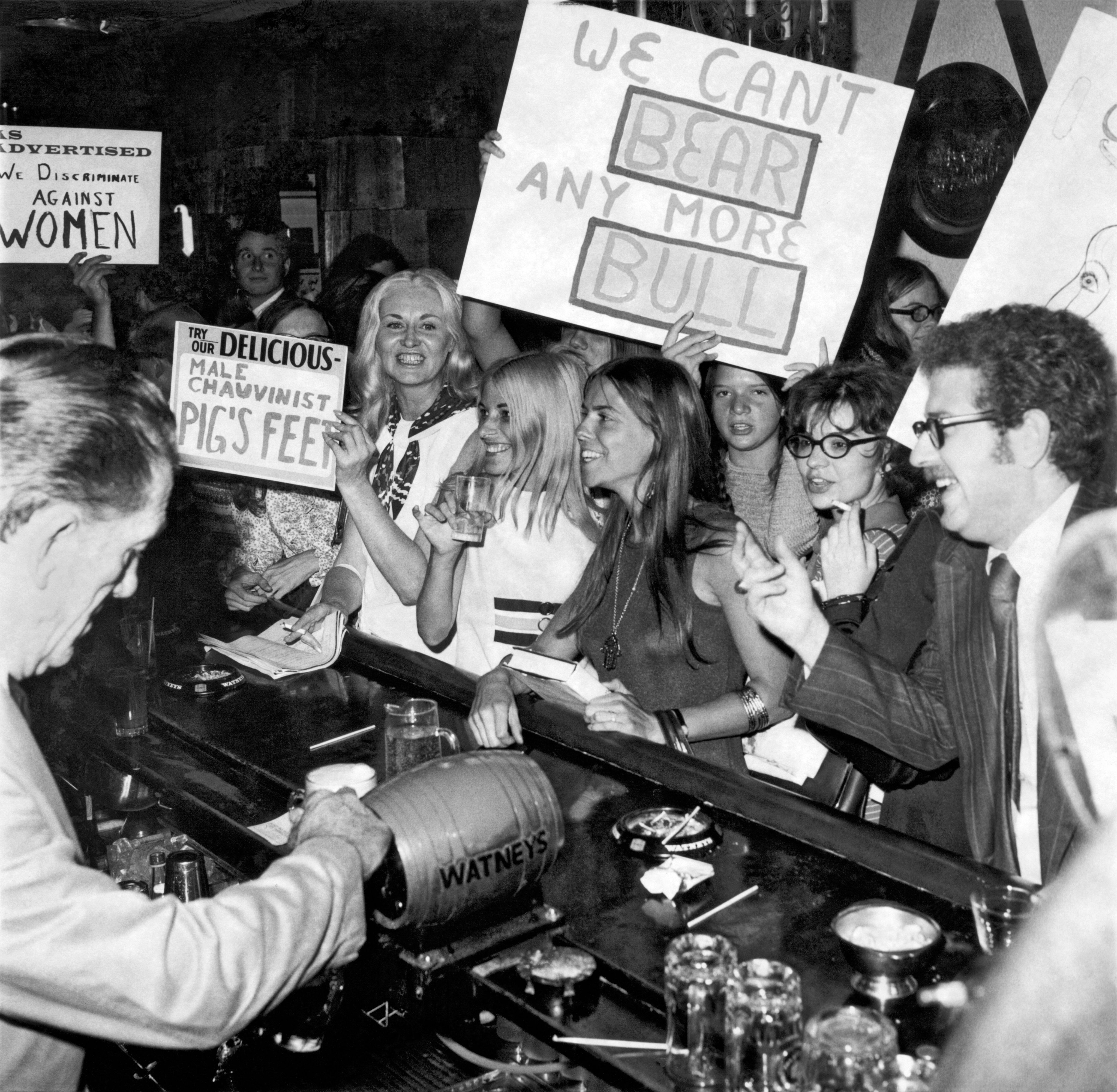
NYC, 26 August 1971: Feminists demonstrate inside Tom Brown's Bar, a male-only establishment in Lower Manhattan.
NYC, 26 August 1971: Feminists demonstrate inside Tom Brown's Bar, a male-only establishment in Lower Manhattan.
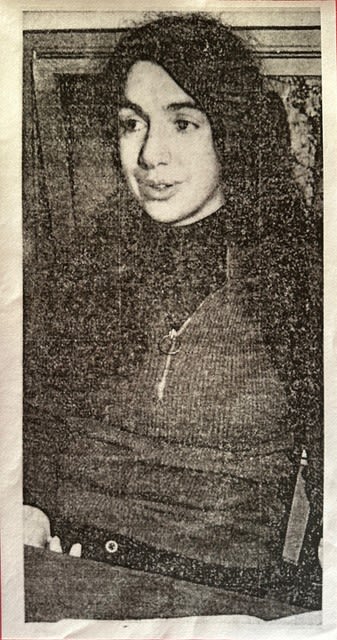
Photo of Wendy Martin taken in 1972-1973 the year she founded Women's Studies while an Assistant Professor at CUNY/ Queens College
Photo of Wendy Martin taken in 1972-1973 the year she founded Women's Studies while an Assistant Professor at CUNY/ Queens College

American Sisterhood: Writings of the Feminist Movement from Colonial Times to the Present (1972) by Wendy Martin
American Sisterhood: Writings of the Feminist Movement from Colonial Times to the Present (1972) by Wendy Martin
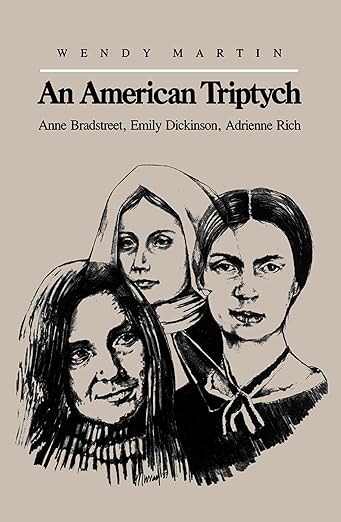
An American Triptych: The Lives and Work of Anne Bradstreet, Emily Dickinson and Adrienne Rich (1984) by Wendy Martin.
An American Triptych: The Lives and Work of Anne Bradstreet, Emily Dickinson and Adrienne Rich (1984) by Wendy Martin.
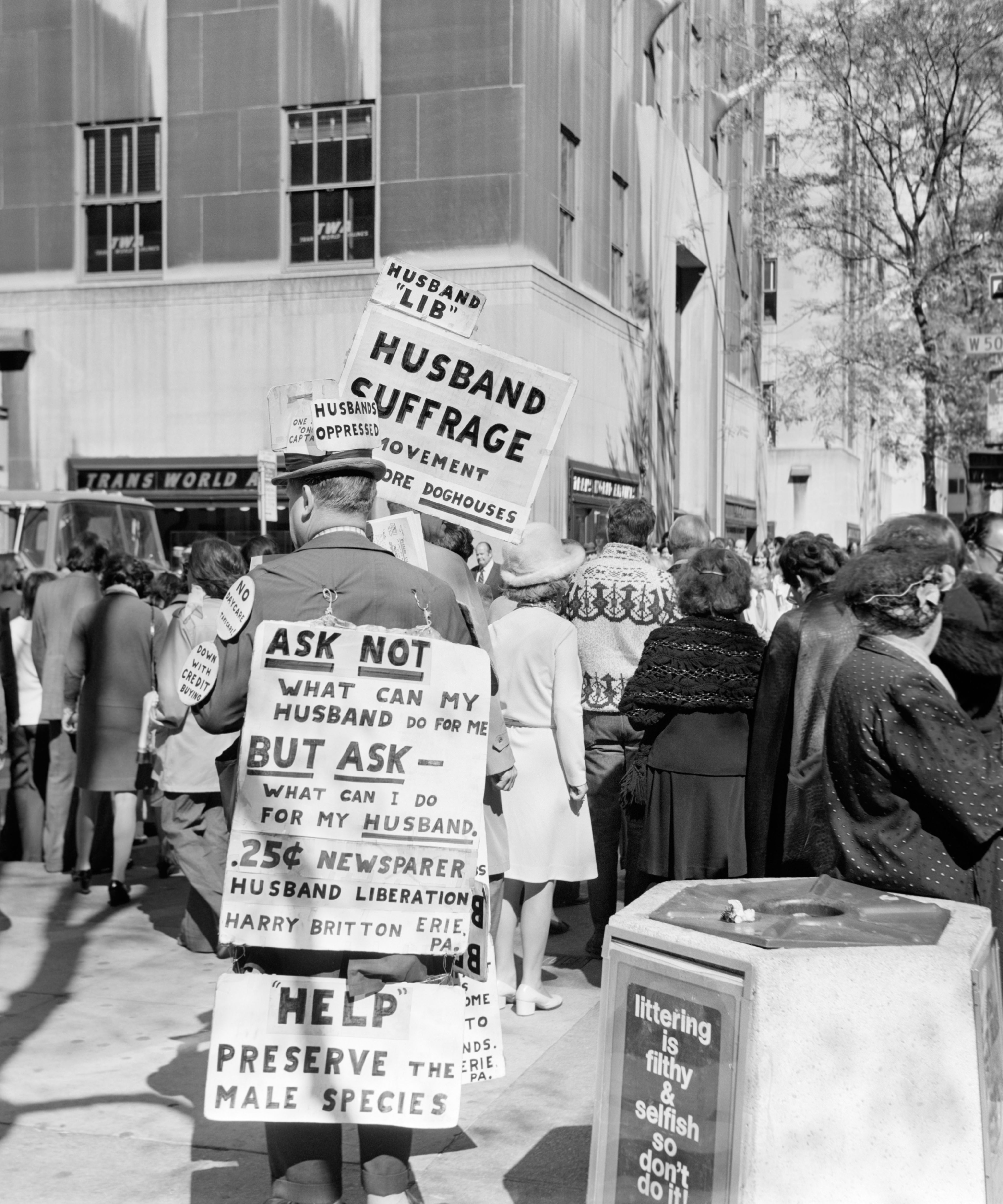
Backlash against feminism never seems to go out of style!
Backlash against feminism never seems to go out of style!
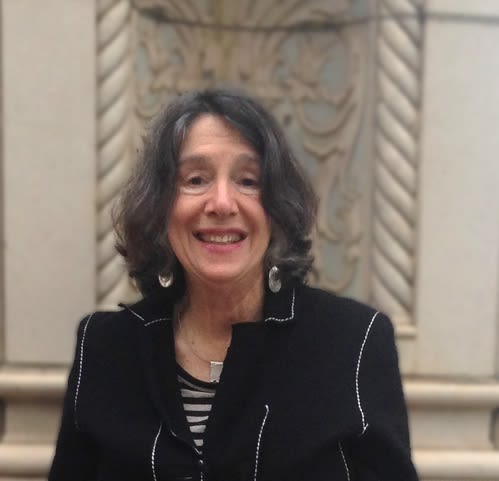
Women's Studies: An Interdisciplinary Journal founder Wendy Martin has lectured on feminist topics at Universities all over the world including Europe, Asia, and the Middle East. She has also published more than 15 books and scores of articles on feminist topics.
Women's Studies: An Interdisciplinary Journal founder Wendy Martin has lectured on feminist topics at Universities all over the world including Europe, Asia, and the Middle East. She has also published more than 15 books and scores of articles on feminist topics.
You might also like:
Insights and blogs
- June Purvis and the Herstory of Women's History Review
- Women healers: from ancient shamans to 21st century doulas
- Celebrating women who tell our stories
- Diversity in academic publishing: How can publishers help repair the 'leaky pipeline'?
- Inspirational women in STEM
- Women in Publishing Employee Resource Group at Taylor & Francis
Social justice and sustainability
Find out about the content we publish, commitments we've made, and initiatives we support related to social justice and sustainability:
 China
China Africa
Africa
